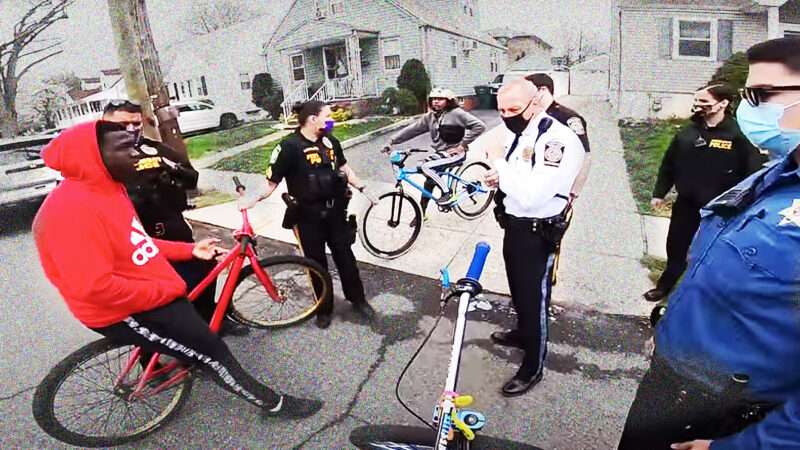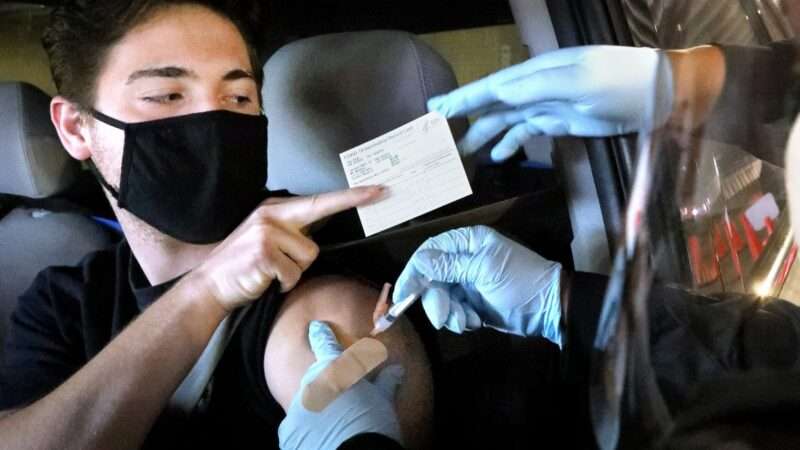One of the most theoretically important and underappreciated Supreme Court decisions of 2020 was Barr v. AAPC, though it has been discussed repeatedly on this blog. In Barr, a fractured group of Supreme Court Justices concluded that it was unconstitutional for Congress to ban most “robocalls” while privileging those robocalls that try to collect government debt; and that in light of this, the statute should be read to ban all robocalls.
The opinion expressing both of those views was a plurality opinion by Justice Kavanaugh that was not supported by five votes. In addition to questions of free speech and severability, the plurality addressed in a footnote the question of liability for those who had made robocalls to collect government debt in the past:
As the Government acknowledges, although our decision means the end of the government-debt exception, no one should be penalized or held liable for making robocalls to collect government debt after the effective date of the 2015 government-debt exception and before the entry of final judgment by the District Court on remand in this case, or such date that the lower courts determine is appropriate. See Reply Brief 24. On the other side of the ledger, our decision today does not negate the liability of parties who made robocalls covered by the robocall restriction.
At the time, I wrote: “This conclusion is perfectly logical, but its legal basis is a bit mysterious to me.” The plurality had purported to agree, in its severability analysis, that courts do not actually have the power to invalidate statutes in the sense of repealing them or changing the law—rather, the “term ‘invalidate’ is a common judicial shorthand” employed when the Court “recognizes that the Constitution is a ‘superior’, paramount law,’ and that ‘a legislative act contrary to the constitution is not law’ at all.” It would seem to follow that whatever the law is after the Supreme Court’s decision in Barr was also the law before the Supreme Court’s decision in Barr.
I will add that I was especially puzzled by the plurality’s expectation that this immunity from enforcement of the robocall prohibition would continue into the future until “the entry of final judgment by the District court on remand” or some other unknown date for unknown reasons.
In any case, in light of all this I was especially interested and please to see a new and excellent opinion on these issues. The opinion is by Judge Stephanos Bibas, who sat by designation on a district court, in a case called Franklin v. Navient. From the beginning:
“[J]udicial decisionmaking” after the fact “necessarily involves some peril to individual expectations.” Rivers v. Roadway Express, Inc., 511 U.S. 298, 312 (1994). Navient may have to learn that the hard way. It robocalled Ricky Franklin for years to collect on his government-backed student loans. Although many types of robocalls are illegal, a federal law said that Navient’s were exempt. Yet after Navient made the calls, the Supreme Court struck down the government-debt exception. And now Franklin is suing. Navient responds that it should not be liable for calls that were legal at the time.
But the calls were not legal at the time. When a court finds a law unconstitutional, it finds that the law was void since the day it was passed. So the robocalling ban never had a valid exception for government debt. Navient cannot rely on one. And while it reasonably thought it was covered by the exception, that is no defense to paying compensation.
Yet Franklin wants more than compensation; he wants punitive damages. And due process bans punishing parties without fair notice. By (mistakenly) saying that Navient’s calls were allowed, Congress deprived it of fair notice. So if Franklin wins at trial, he may recover damages—but only to compensate him for the injuries he can prove.
And the middle:
Courts cannot change the law; they can only declare what the law has always been. When the Supreme Court severed the government-debt exception from the Act, it ruled that the law never had the exception—despite the law’s text.
So Navient cannot get summary judgment based on the exception’s coverage.
Still, Navient seeks summary judgment for a different reason: even though the exception was void, it was on the books. So the company lacked fair notice that its speech was illegal. Enforcing the Act, it argues, would violate due process and the First Amendment.
Navient is mistaken. In civil cases, courts may apply surprising rulings to past acts. There is no exception for free speech (at least not yet).
So Navient may have to compensate Franklin for its calls, whether before or after 2015.
A. The government-debt exception never took effect
A severance ruling, like any other ruling, says only what the law is and has always been. Thus, the Supreme Court’s decision severing the government-debt exception applies retroactively. That exception was never the law.
1. Judicial decisions apply retroactively.
The Supreme Court has the power to declare law, not make it. The Constitution vests “[a]ll legislative Powers” in Congress. U.S. Const. art. I, § 1. Courts are limited to judging “Cases” and “Controversies.” Art. III, § 2. As Blackstone explained, they are “not delegated to pronounce a new law, but to maintain and expound the old one.” 1 William Blackstone, Commentaries *69. Their only power is “to say what the law is.” Marbury v. Madison, 5 U.S. (1 Cranch) 137, 177 (1803) (emphasis added). So federal courts cannot ” ‘change[ ]’ the law”; they can only, in deciding cases, say what a law “has meant continuously since the date when it became law.” Rivers, 511 U.S. at 313 n.12.
Because Supreme Court decisions clarify what the law “ha[s] always meant,” their rulings apply to all open cases, even those whose facts predate the ruling. Id.; Harper v. Va. Dep’t of Tax’n, 509 U.S. 86, 97 (1993). Otherwise, they would be “not … adjudication but in effect … legislation.” Griffith v. Kentucky, 479 U.S. 314, 323 (1987) (quoting Mackey v. United States, 401 U.S. 667, 679 (1971) (Harlan, J., concurring in the judgment)). In short, judicial decisions apply retroactively. Harper, 509 U.S. at 94, 97.
2. Severance rulings apply retroactively.
That rule is equally true of severance decisions. Severance is just ordinary statutory interpretation. See Ayotte v. Planned Parenthood of N. New England, 546 U.S. 320, 330 (2006). When a court finds a law unconstitutional, it finds that it is “void, and is as no law” from the day it is passed. Ex parte Siebold, 100 U.S. 371, 376 (1879). It never took effect as written. Often, the court must then decide what did take effect. Maybe no law did. But maybe Congress passed the law with a fallback rule. That is a question of statutory interpretation. The severance analysis answers it, telling us what the law has meant from the start.
3. AAPC’s rule applies retroactively.
When Congress amended the Act in 2015, it wanted to allow robocalls to collect government debt but ban other robocalls. In AAPC, the Court held that this combination of aims violates the First Amendment. If it violated the First Amendment in 2020, then it has violated the First Amendment since 2015. So Congress’s ideal version of the Act was void from the start. It never became law.
Instead, some fallback rule kicked in right away. To cure the content discrimination, either the exception was void (so the Act covered all robocalls) or the exception became the rule (so it covered none). The Act has a severability clause. Thus, the AAPC plurality reasoned, Congress had picked the first rule. 140 S. Ct. at 2352.
AAPC addressed only what the Act means going forward. But if the exception was void the day it was passed, and Congress’s fallback rule was to nix it, then it never took effect. As Justice Kavanaugh put it, the exception was ” ‘not law’ at all.” 140 S. Ct. at 2351 n.8 (quoting Marbury, 5 U.S. at 177). If Navient relied on the government-debt exception, it made a mistake. Because the Constitution trumps the Act, the Act never had a valid exception. This Court erred in granting partial summary judgment.
Judge Bibas then went on to explain why the Due Process Clause didn’t forbid liability, and also why the Court’s decisions about retroactive criminal liability had not yet been extended to civil cases. And as to the AAPC plurality opinion:
C. To follow the AAPC plurality, I would need to overhaul the law
The AAPC plurality thought that government-debt collectors would avoid all liability. But I do not see how. In a footnote, Justice Kavanaugh wrote that “no one should be penalized or held liable for making robocalls to collect government debt after the effective date of the 2015 government-debt exception and before … th[at] case.” AAPC, 140 S. Ct. at 2355 n.12 (emphasis added). To follow the second half of this dictum, I would need to either treat AAPC like legislation or extend Bouie to free-speech cases. Either would be a stretch. Plus, “a holding that shields only government-debt collection callers from past liability … would wind up endorsing the very same kind of content discrimination [that AAPC] s[ought] to eliminate.” Id. at 2366 (Gorsuch, J.). The Supreme Court could reasonably extend Bouie to shield speakers, but I will not.
Finally, Judge Bibas then went on to make an interesting distinction, concluding that punitive damages would be unavailable, because retroactive punishment—as distinct from retroactive liability—raised a different set of issues.
Now Judge Bibas’s opinion is limited to applying current Supreme Court precedent (not including the plurality opinion, which Judge Bibas rightly seems to assume is not binding). But this analysis is sufficiently thoughtful and persuasive that I wouldn’t be surprised to see it having some influence even when the Justices next have to return to considering these issues.
from Latest – Reason.com https://ift.tt/3tEBbMH
via IFTTT



